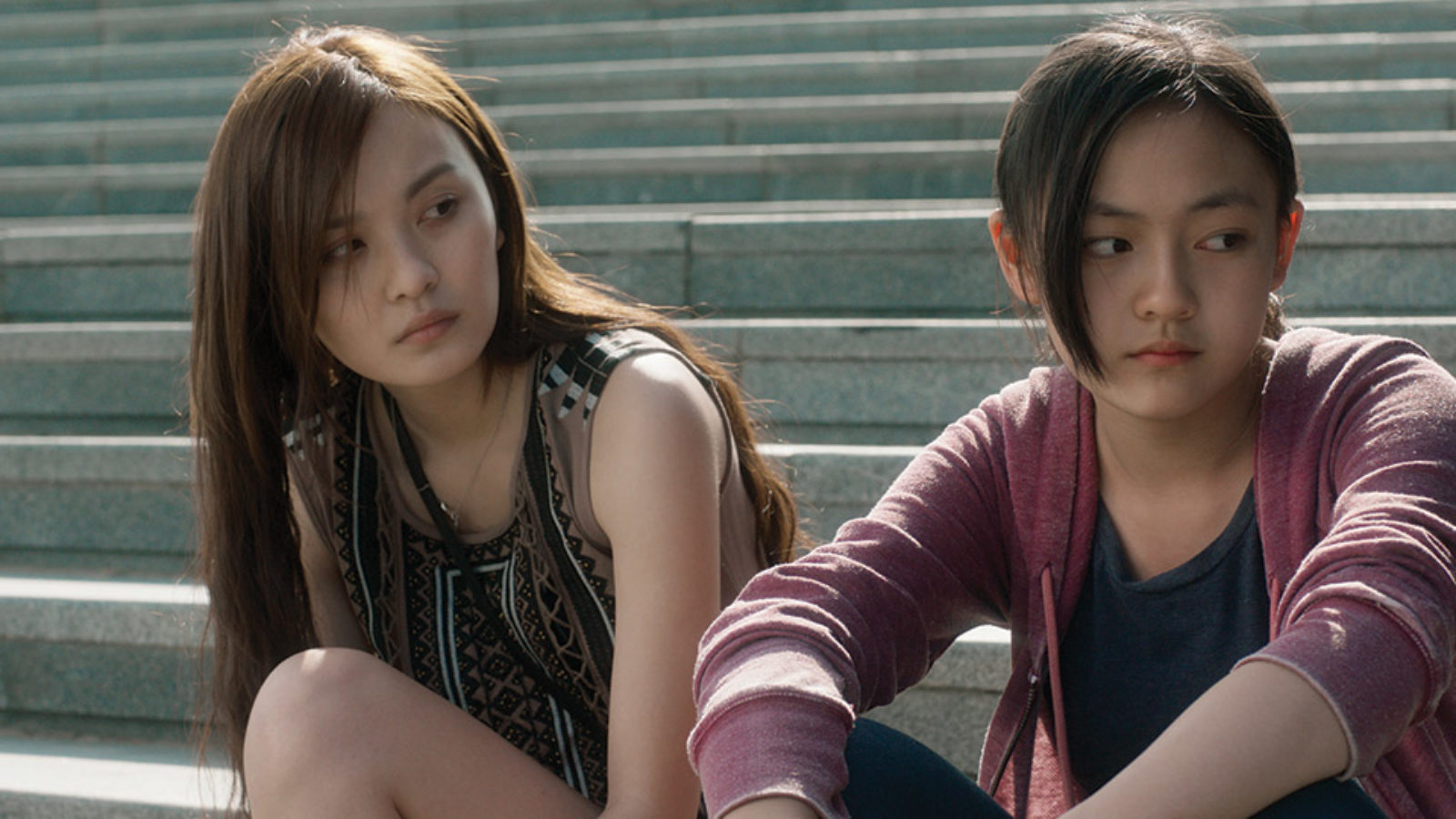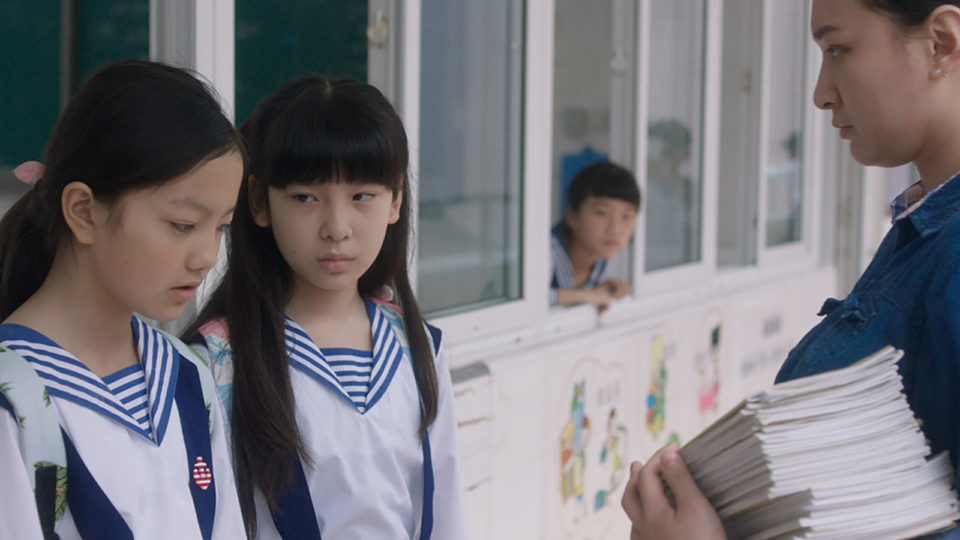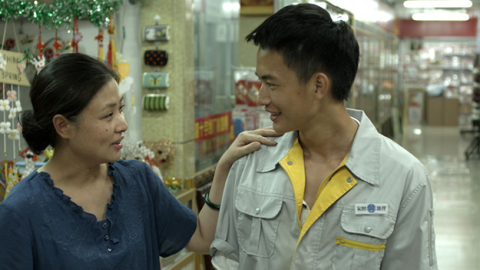By Amy Taubin in the May-June 2018 Issue

Review: Angels Wear White
(Vivian Qu, China, KimStim, Opening May 4)
In Nanfu Wang’s Hooligan Sparrow (2016), a fearless documentary about the Chinese women’s rights activist Ye Haiyan, we follow the protests she organized against the light sentences received by a middle-school headmaster and a government official who were found guilty of having taken six girl students to a hotel where they sexually abused and raped them. The documentary circulated worldwide even as Ye had her passport revoked by the Chinese government, several of her fellow protesters were jailed, and the female lawyer who worked with them, after signing a forced confession, was disappeared.

From the May-June 2018 Issue
Also in this issue
And the sexual abuse of girls and women in China continues. Angels Wear White, Vivian Qu’s dark but clear-sighted fiction feature, explores a rape case similar to that in Hooligan Sparrow. Set in a seaside resort in southern China during the off-season, the film opens with Mia (Wen Qi), a taciturn teenager, gazing up at a huge plaster statue of a woman in white high-heeled sandals. Mia, who might be 16, although she claims to be older, barely comes up to the top of the statue’s ankles. She’s soon shouldered aside by two 12-year-old girls, Wen (Zhou Meijun) and Xin (Zhang Xinyue), posing for selfies. We won’t see the face of the “Forever Marilyn” statue, modeled on the famous billowing skirt publicity photo for The Seven Year Itch, until the end of the movie, when it’s dismantled and trucked away. If you know that a “Forever Marilyn” knockoff was found in a Chinese garbage dump, the last shot of Angels Wear White is even more unsettling than it might appear to be.
But back to the beginning: Mia leaves the beach and returns to her job at a nearby motel, where she’s a cleaner and sometime substitute for the receptionist, who on this fateful night has a date with her boyfriend, a layabout pimp. When Police Commissioner Liu arrives with Wen and Xin, asking for two rooms, Mia is curious enough to watch on the motel’s CCTV and to record on her cell phone the image of the two girls struggling unsuccessfully to keep Liu out of their room. The next morning she also hides the stained linens and a blonde wig that were left behind. Is she an aspiring private investigator or a tough young woman looking for an advantage?

The power of the film rests with this character, an underage, undocumented migrant worker, who gives nothing away as she tries to survive in an overwhelmingly corrupt society, where women have no value except as objects to be traded by men. Wen, the more vulnerable of the two young girls (because her family is poor), is almost as compelling. Her father, one of Commissioner Liu’s underlings, believed he was securing his daughter’s future when he asked his boss to be her godfather, but now he can’t take action alone without risking his livelihood. Wen’s mother, a bar dancer, blames her daughter for being raped and takes out her anger by chopping off Wen’s hair and shredding her clothes. The only character who might be able to bring the criminal police chief to justice is Attorney Hao (Shi Ke), a female prosecutor, whose persistence causes the narrative to twist several times over in unexpected ways.
As a writer-director, Qu never pulls her punches, while keeping the bad guys and their horrific violence at the edge of the frame. They are merely representatives of the all-encompassing misogyny of the state. What keeps Angels Wear White from being a total bummer is Mia and Attorney Hao’s struggle for agency, and the possibility that films like this one can bring forward the need for justice.
Amy Taubin is a contributing editor to Film Comment and Artforum.





